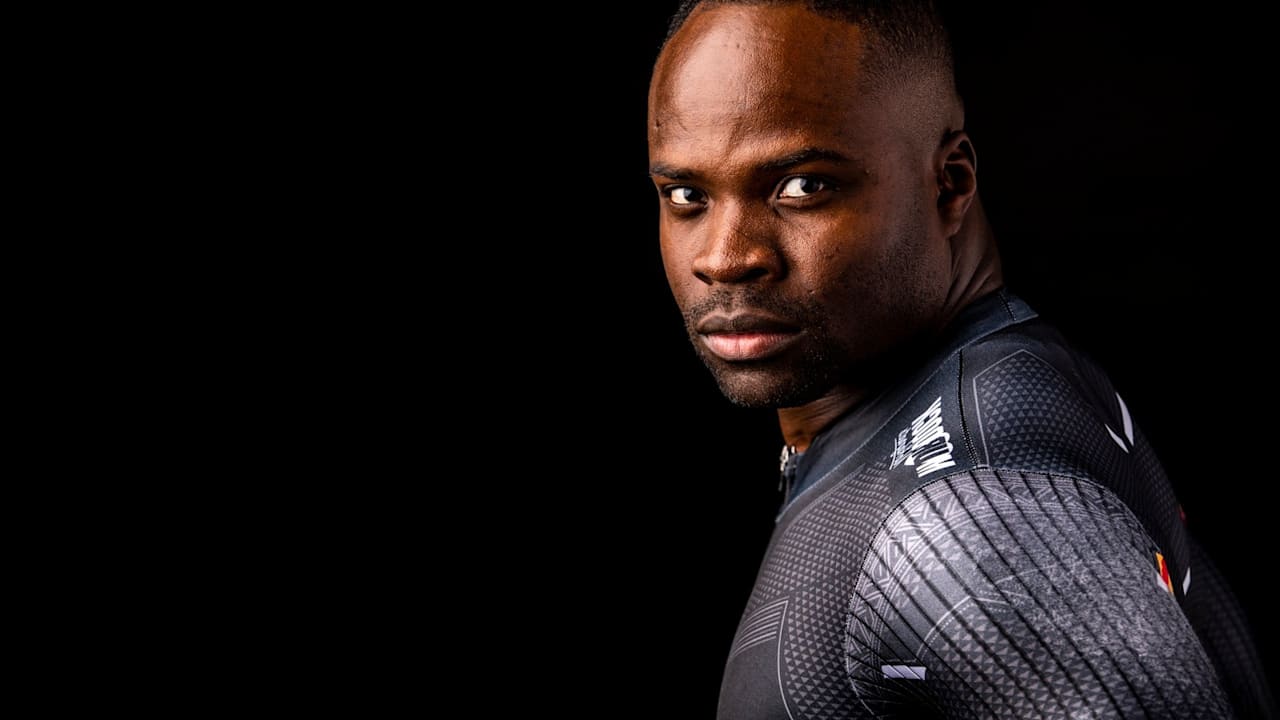Akwasi Frimpong: Breaking Boundaries To Show That It Is Possible For Africans To Be On Ice
It takes something special for any athlete to find interest in several sports activities simultaneously; it even takes something more special to thrive in all the sports categories. Akwasi Frimpong is a Ghanaian-born Dutch athlete who has shared his experience with being a multiple sports athlete.
“I was born in Ghana in February 1986 to a beautiful family of my mum Esther and my dad Joseph Asamoah and raised up in Ghana until I was about 8 years old. For 8 years, I lived actually with my grandmother because my mum left Ghana for the Netherlands.”
Akwasi attributed his success in sports to his lifestyle back in Ghana, where he had all the inspiration he could get from his community to his love for Afro-pop music to his diet.
“I will say the determination to work hard. The speed comes with genetics, I think. God blessed me with fast legs. Also in Ghana, having to run after all the kids just like all the people running after me trying to get a soccer ball from me. I am definitely raised up with that genetic strength and speed in me. A lot of other things I had to learn; obviously, the food always keeps me healthy and strong.”
Also, Akwasi referred back to his motherland as a factor that made him a successful sportsman.
“What makes the people of Ghana special is our history, being able to stay together, to be together, to fight together and to work hard together. And I think that’s one thing we are blessed with. We love our people, our culture. We are really culture oriented people. What makes us strong is being one as people.”
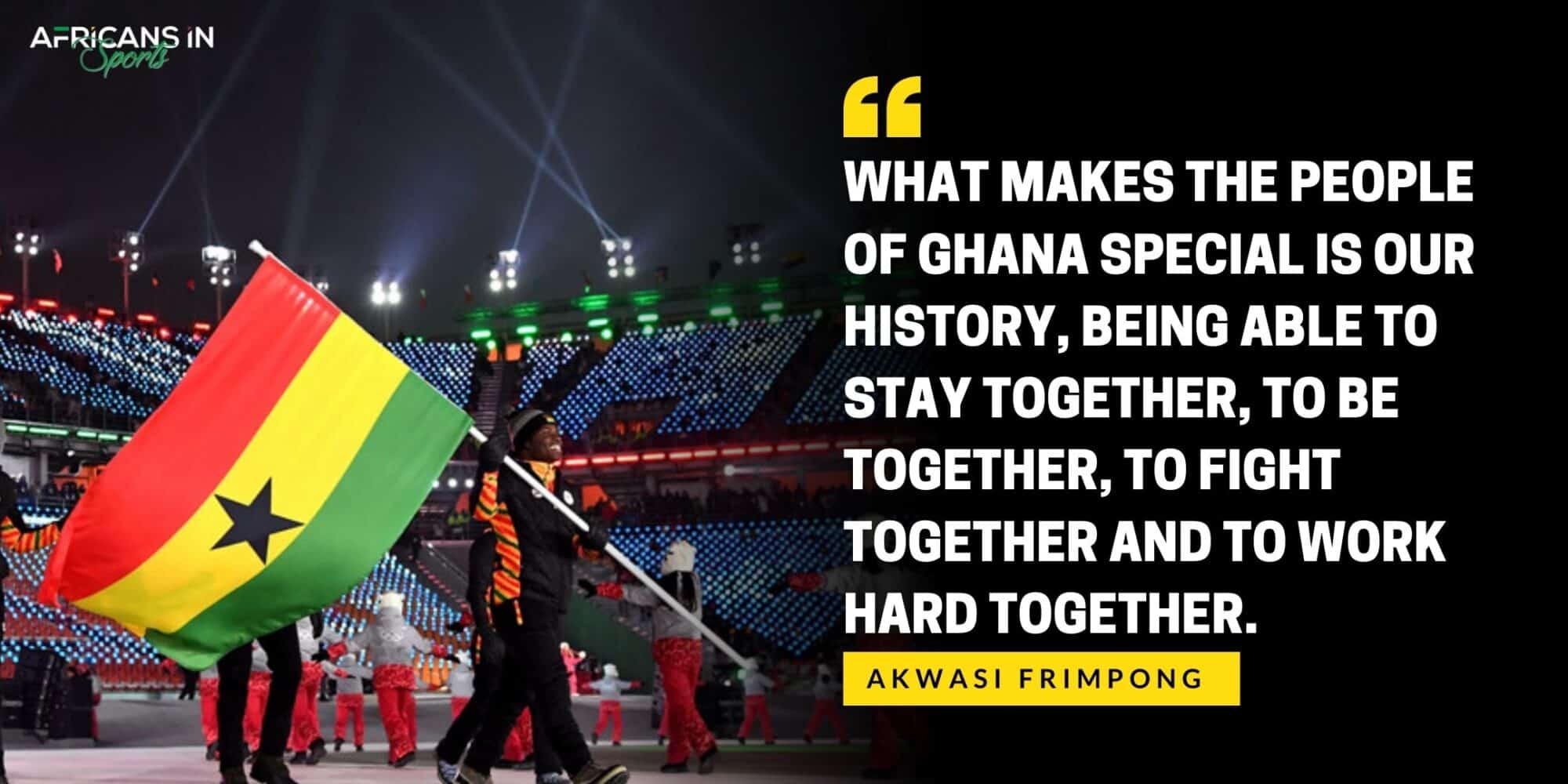
At the age of 8, Frimpong moved out of Ghana to settle down at the Netherlands in search of a better life as promised by his mother.
“In 1989, when I was 3 years old, my mother left Ghana to the Netherlands to prepare a better future for me and my brother Koffi. Meanwhile, my grandma was the one who took care of me, my brother Koffi and 8 other cousins. My mum kept her promise, worked really hard at 2 to 3 jobs and found a place to live. So in 1995 when I was about 8, she kept her promise and came back for us, and we moved with her from Ghana to the Netherlands, and that was when we started a new life as a family.”
Like any other immigrant, especially for a black continent, settling and reception from a new country was usually a mountain task.
“At the beginning, we went there with the idea that life was going to be perfect, but life isn’t that easy as we had to struggle, pray and battle for Dutch citizenship because I and my family all had a different last name and they didn’t think we were family members coupled with the way we travelled in as well.”
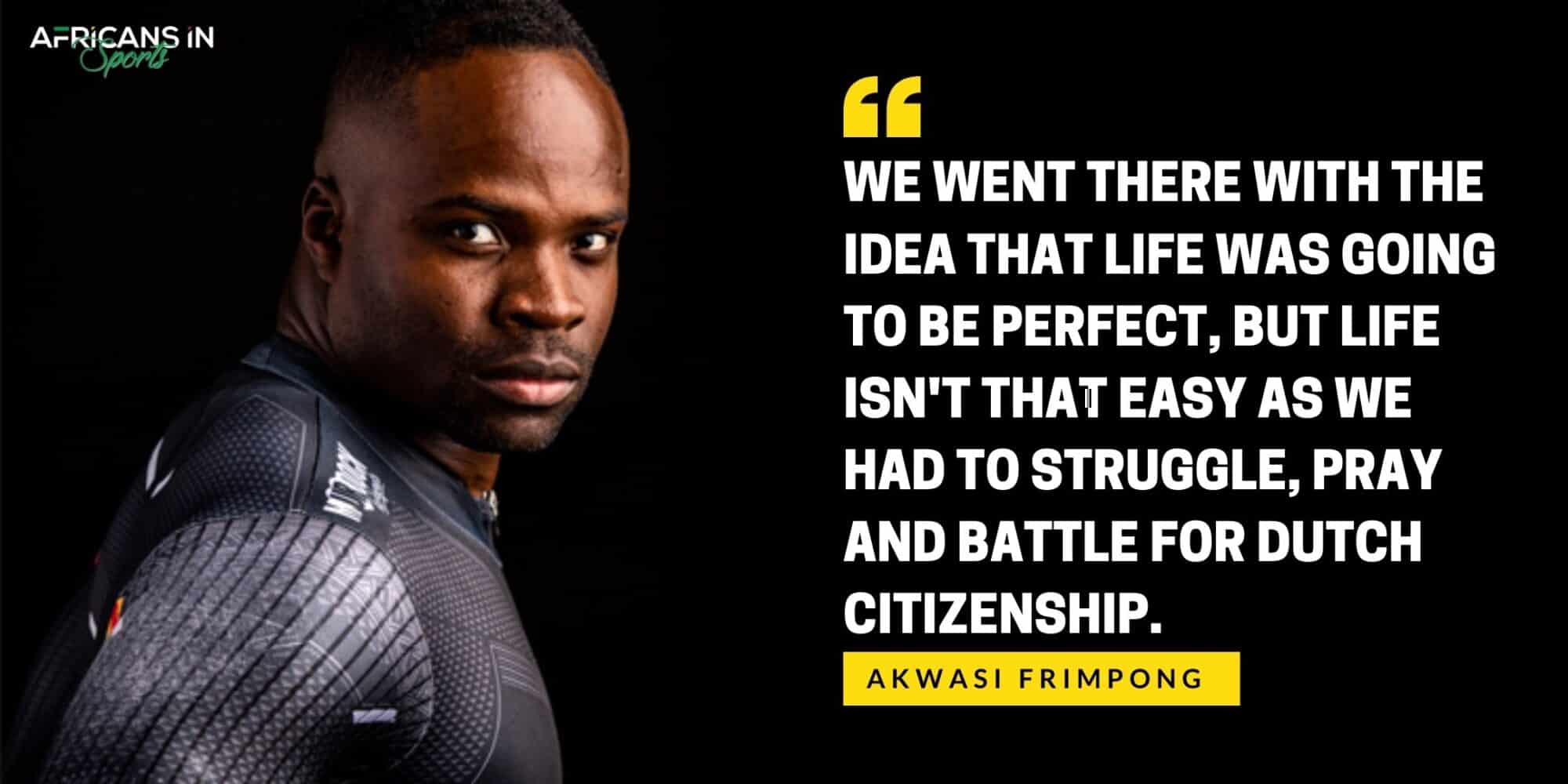
“It became a whole big deal as of being an undocumented immigrant for like 13 years. So, it was really hard on my family as they had to pay so many lawyers to keep us in the country. We were not allowed to go to school because we didn’t have the legal citizenship, no doctor wanted to treat us when we were sick because we didn’t have insurance to go to the hospital. The fact that sometimes we didn’t have opportunity to do that was really tough on my family, the fact that I wasn’t able to work to support my mum and dad who were already working two to three jobs to pay lawyers was tough.”
“As an illegal immigrant, when you walk around, people see you as criminals because that’s how the media portrays it. We struggled as a family, but we had good people around us who saw our talent and our needs and were there for us. One of the famous people who helped us to eventually become a legal citizen was the legendary Johan Cruyff.”
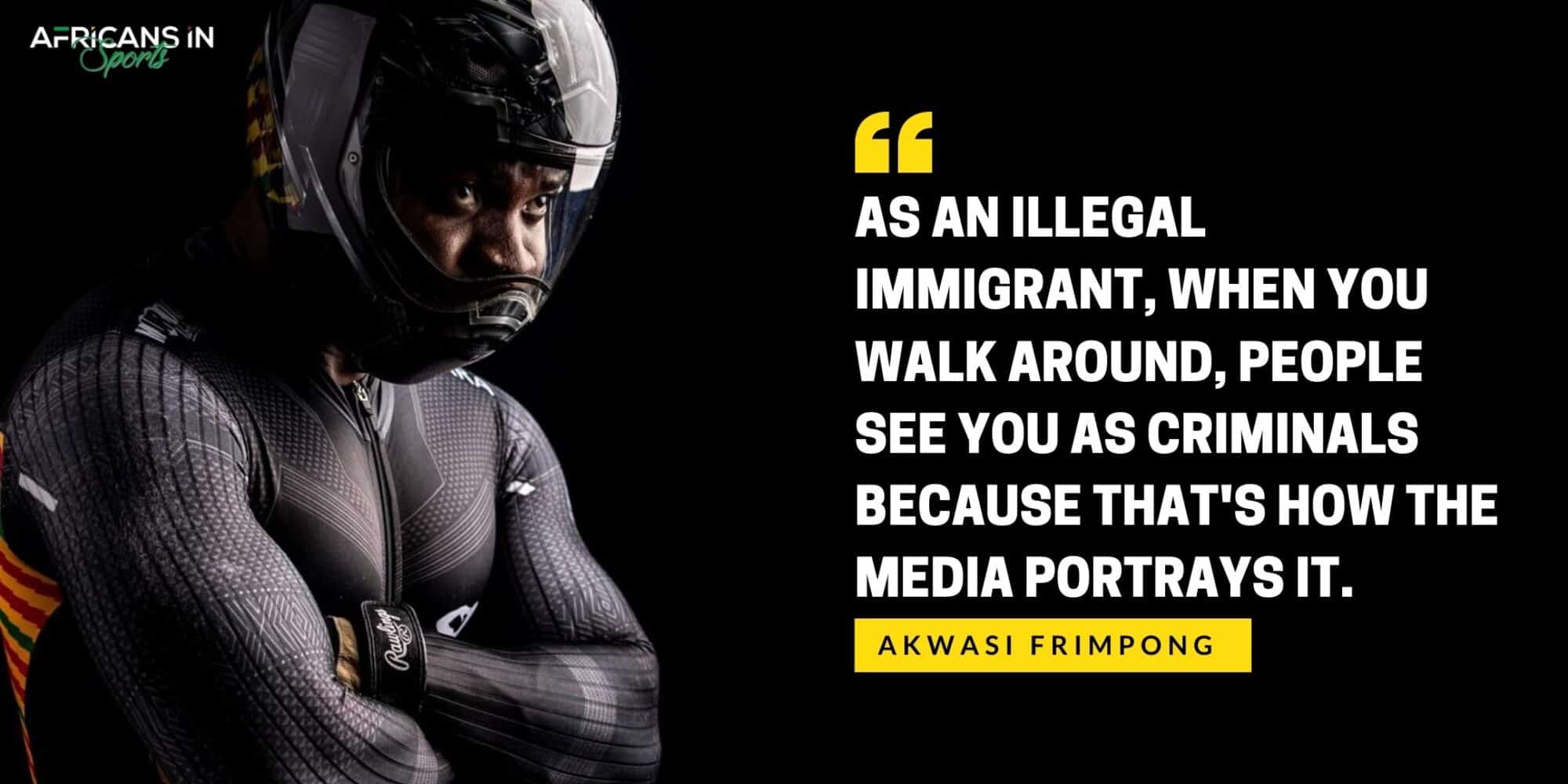
As a child who grew up in Ghana, Akwasi wasn’t exposed, nor the avenue to build himself and sports activities let alone choose it as a life career.
“I actually learned more about sports when I was in Netherland. It was when I discovered how to be able to evolve in several different Sports. After school, we do physical education where you get involved in track and field, soccer, football and swimming, and you get a bit of introduction to a lot of different sports.”
“My first major sports were always track and soccer. Being born in Ghana, I always wanted to play for Ajax as soccer was what I always wanted to do but realised later on that I was too fast for the soccer ball so I had to divert into something else, and that’s when I discovered to do track and field when I was about 15 years old.”
“I remember that we had a relay and the baton fell down off my team and because it’s school, you can pick it up, it’s not like you are disqualified, so I picked up the baton when we were about 30 metres behind on the other team, and I chased and caught up with that 30 metres, and I won that race, and that was when my coach discovered me, and he suggested I tried track and field and later on, I got involved.”
“I really remember my first race at the Dutch championship, the 120 metres where I lost by 1/100th of a second and I didn’t make the finals. I remember walking up to my coach, and I said ‘coach Sammy, what do I need to do to be the best on and off the field, what do I need to do to win a gold medal?’ and he talked to me about self-discipline, showing up at training, doing the right things you are told to do. And when I listen to that, within 18 months, I became a Dutch champion.”
After finding interest in track athletics, Akwasi had always dreamed of participating in the biggest stage as he always hoped he could feature in the Olympic games.
“I remember getting a phone call in 2011 from the Dutch 4X100 relay coach, his name is Troy Douglas and said, ‘you are now selected on the Dutch pre-Olympic relay team for the London Olympic games. That day was it for me because I left everything that I loved in the Netherlands, my comfort zone, everything that I knew, to move away from the Netherlands miles away to go after a dream that I didn’t even know was going to happen to finally get to the point where I got a phone call. And that phone call made a difference in my life, and I was excited training for that.”
“Couple of months before then something terrible happened, I got injured in my tendon, so I didn’t get to make the travel squad to go to the London Olympic games. I was so devastated because I worked so hard in going after that dream, but the fact that I gave it a shot and tried is something that would always live with me.”
Akwasi grew up in a continent and a country that didn’t have snow at any point in time as a weather condition, even after moving to the Netherlands who only experienced very little of it. Shortly after he missed the 2012 London Olympic games, Akwasi was recruited into the Netherlands’ bobsledding national team due to his speed.
“As I couldn’t train with the Netherlands team, I came back to Europe as I was looking for a job and I couldn’t find a way. I became a vacuum salesman. I started selling vacuum door to door and got doors slammed on my face.”
“Later on, the coach who recruited me to do bobsledding gave me a call and said ‘hey you should try skeleton’. Then I remember in 2015; my wife looked at me as we were successful business people, and my wife asked what was bothering me. I said; ‘besides being married to you, my number one dream is really to go to the Olympics, I really really want to reach that level. And she said; ‘I don’t want you to be 99 years old and still be whining about your Olympic dream so let’s go for it’.
“We were in Arizona then, we drove 13 hours back to Utah and started to pick up skeleton and here I was, Ghana man, lying on my belly thinking that at the end of the finish, they probably had my coffin ready to bury me, it was that how scared I was.”
Akwasi pioneered the Ghana bobsledding and skeleton federation and by choosing to represent Ghana over the Netherlands. He earned an automatic qualification to the 2018 Winter Olympics in China to represent Africa’s whole continent.
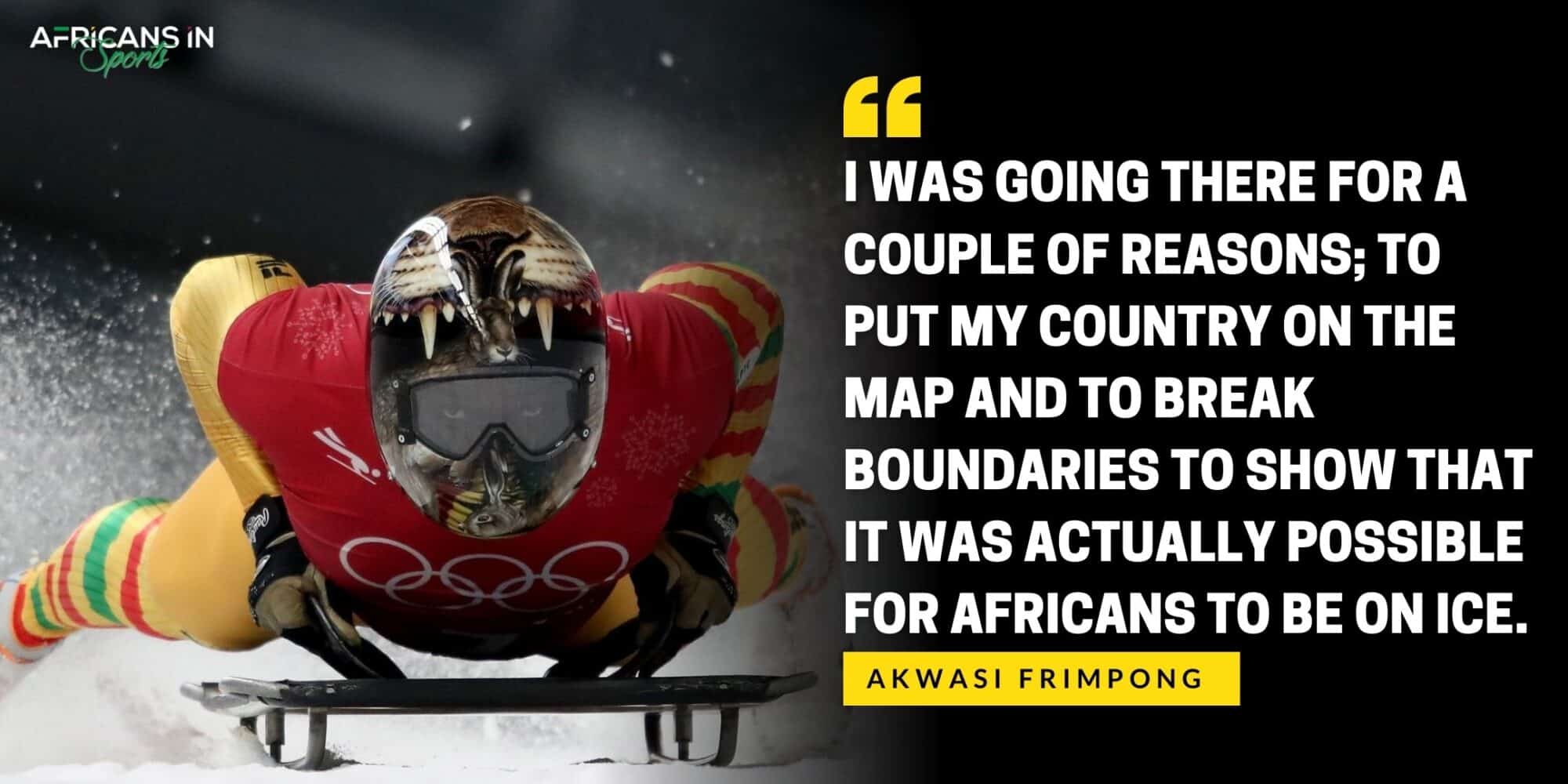
“When I went to the Olympic games, I just started the sport about a year and a half, and everybody competing in skeleton in 2018 were doing the sport for about 16 to 18 years. It was definitely different when it comes to the competitive part, but I knew I was going there for a couple of reasons; to put my country on the map and to break boundaries to show that it was actually possible for Africans to be on ice, and to gain experience for the 2022 Olympics. That was my goal when I went there, and I definitely feel I was able to fulfil that, and on top of that, I was able to inspire millions of people.”
